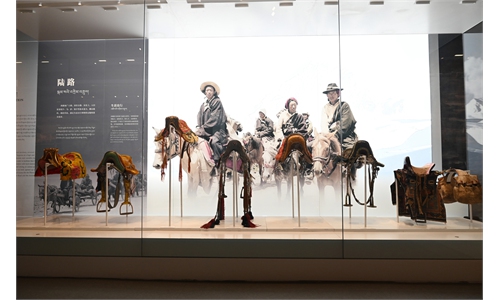SW China’s Xizang tourism authorities gear up digital transformation, explore metavers epotential

Mount Qomolangma
As the summer travel market rebounds, local tourism authorities ina number of Chinese cities including Shigatse, Southwest China's Xizang Autonomous Region-home to the world's highest peak Mount Qomolangma (Mount Everest) - have geared up digital transformation and taken advantage of the growing metaverse economy, as part of efforts to inject new vigor into local tourism and ease the fallout created by the epidemic.
Meng Wenhai, a Shigatse official, said at a travel promotion eventin recent days that the city seeks to speed up digital transition of tourism and cultural industry, as digital travel and metaverse industry gained momentum, news portal China Times reported.
The promotion event aims to display the history and culture of Shigatse from a well-rounded perspective and showcase the rich and unique travel resource of the city, while also enhancing the influence and reputation of "Mount Qomolangma ecological and cultural tourism circle," the report said.
At the event, local authorities, along with travel agencies unveiled three new travel packages targeting tourists who pursue adventure and unique tourist sites, including a four-day border trip on China National Highway 219 (G219), which runs along China's entire southwestern border and borders India and Nepal.
The local tourism and development bureau will also issue digital travel coupons worth 1 million yuan ($148,200) through online travel platform Trip.com until August 31, offering tourists discounts and incentives.
Shigatse is known as the gateway to Mount Qomolangma, also known as Mount Everest. In addition to the world's highest peak, it also has over 300 tourist sites. According to data from Trip.com, the number of tourists who book trips to Shigatse via the platform grew 34.1 percent year-on-year in the first half of 2022, making the city take the lead in travel recovery in the region.
At the event, industry insiders also urge the city to vitalize its beauty through digital means, and actively study the value of digital assets. Some also suggested the city could draw on the digital exhibition experience of cultural authorities in Dunhuang, which is home to the world cultural heritage listed Mogao Grottoes.
The Dunhuang Research Institute has utilized computer and digital imaging technology to simulate the cultural relics at the grottoes, helping to preserve and display them permanently.
Global Times



